 W
WSir Winston Leonard Spencer Churchill, was a British statesman who served as Prime Minister of the United Kingdom from 1940 to 1945, during the Second World War, and again from 1951 to 1955. Best known for his wartime leadership as Prime Minister, Churchill was also a Sandhurst-educated soldier, a Nobel Prize-winning writer and historian, a prolific painter, and one of the longest-serving politicians in British history. Apart from two years between 1922 and 1924, he was a Member of Parliament (MP) from 1900 to 1964 and represented a total of five constituencies. Ideologically an economic liberal and imperialist, he was for most of his career a member of the Conservative Party, which he led from 1940 to 1955, though he was a member of the Liberal Party from 1904 to 1924.
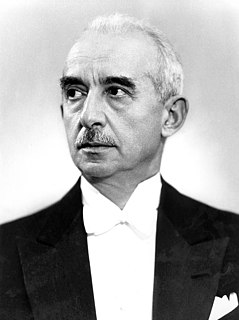 W
WThe Adana Conference or Yenice Conference was a meeting between Turkish President İsmet İnönü and British Prime Minister Winston Churchill in a railway car parking on a storage track at Yenice, near Adana on 30–31 January 1943, where Churchill tried to persuade İnönü to join the Allied powers and fight the Axis powers during World War II.
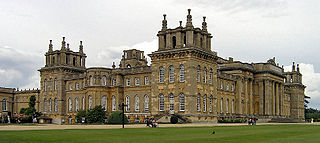 W
WBlenheim Palace is a country house in Woodstock, Oxfordshire, England. It is the seat of the Dukes of Marlborough and the only non-royal, non-episcopal country house in England to hold the title of palace. The palace, one of England's largest houses, was built between 1705 and 1722, and designated a UNESCO World Heritage Site in 1987.
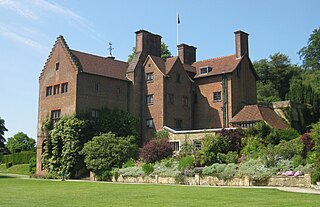 W
WChartwell is a country house near Westerham, Kent, in South East England. For over forty years it was the home of Winston Churchill. He bought the property in September 1922 and lived there until shortly before his death in January 1965. In the 1930s, when Churchill was out of political office, Chartwell became the centre of his world. At his dining table, he gathered those who could assist his campaign against German re-armament and the British government's response of appeasement; in his study, he composed speeches and wrote books; in his garden, he built walls, constructed lakes and painted. During the Second World War Chartwell was largely unused, the Churchills returning after he lost the 1945 election. In 1953, when again prime minister, the house became Churchill's refuge when he suffered a debilitating stroke. In October 1964, he left for the last time, dying at his London home, 28 Hyde Park Gate, on 24 January 1965.
 W
WThe International Churchill Society (ICS), formerly known as the Churchill Centre, studies the life and works of Winston Churchill. The Society's exhibits are located at the Churchill War Rooms in London, and the National Churchill Library and Center at the George Washington University in Washington D.C.
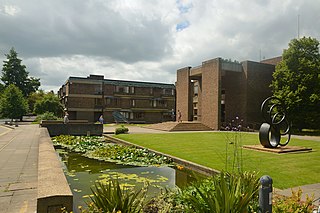 W
WChurchill College is a constituent college of the University of Cambridge, England. It has a primary focus on science, engineering and technology, but still retains a strong interest in the arts and humanities.
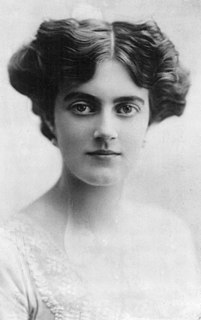 W
WClementine Ogilvy Spencer Churchill, Baroness Spencer-Churchill, was the wife of Winston Churchill, Prime Minister of the United Kingdom, and a life peer in her own right. While legally the daughter of Sir Henry Hozier, her mother’s known infidelity and his suspected infertility make her paternal parentage uncertain. Clementine met Churchill in 1904 and they began their marriage of 56 years in 1908. They had five children together, one of whom died at the age of two from sepsis. During the First World War, Clementine organised canteens for munitions workers and during the Second World War, she acted as Chairman of the Red Cross Aid to Russia Fund, President of the Young Women’s Christian Association War Time Appeal and Chairman of Maternity Hospital for the Wives of Officers, Fulmer Chase, South Bucks. Throughout her life she was granted many titles, the final being a life peerage following the death of her husband in 1965. In her later years, she sold several of her husband’s portraits to help support herself financially. She died in her London home at the age of 92.
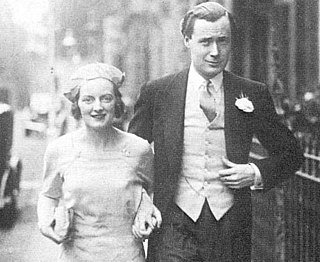 W
WDiana Spencer-Churchill was the eldest daughter of British statesman Sir Winston Churchill and Clementine Churchill, Baroness Spencer-Churchill.
 W
WChurchill, Hitler and the Unnecessary War: How Britain Lost Its Empire and the West Lost the World, is a book by Patrick J. Buchanan, published in May 2008. Buchanan argues that both world wars were unnecessary and that the British Empire's decision to fight in them was disastrous for the world. One of Buchanan's express purposes is to undermine what he describes as a "Churchill cult" in America's élite and so he focuses particularly on how Winston Churchill helped Britain get into wars with Germany in 1914 and again in 1939.
 W
WJennie Spencer-Churchill, known as Lady Randolph Churchill, was an American-born British socialite, the wife of Lord Randolph Churchill, and the mother of British prime minister Sir Winston Churchill.
 W
WSir Winston Leonard Spencer Churchill, was a British statesman who served as Prime Minister of the United Kingdom from 1940 to 1945, during the Second World War, and again from 1951 to 1955. Best known for his wartime leadership as Prime Minister, Churchill was also a Sandhurst-educated soldier, a Nobel Prize-winning writer and historian, a prolific painter, and one of the longest-serving politicians in British history. Apart from two years between 1922 and 1924, he was a Member of Parliament (MP) from 1900 to 1964 and represented a total of five constituencies. Ideologically an economic liberal and imperialist, he was for most of his career a member of the Conservative Party, which he led from 1940 to 1955, though he was a member of the Liberal Party from 1904 to 1924.
 W
WRandolph Frederick Edward Spencer-Churchill was an English journalist, writer, soldier and politician. He served as Conservative Member of Parliament (MP) for Preston from 1940 to 1945.
 W
WSarah Millicent Hermione Touchet-Jesson, Baroness Audley was an English actress and dancer and the daughter of Winston Churchill.
 W
WSir Winston Churchill died on 24 January 1965, aged 90. His was the first state funeral for a non-royal family member since Lord Carson in 1935, and as of 2021 it remains the most recent state funeral in the United Kingdom. The official funeral lasted for four days. Planning for the funeral, known as Operation Hope Not, began 12 years before Churchill's death. It was initiated after Churchill's stroke in 1953 while in his second term as the Prime Minister of the United Kingdom. After several revisions due to Churchill's continued survival and as "the pallbearers kept dying", the plan was issued on 26 January 1965, two days after his death.
 W
WThe British statesman Winston Churchill was a prolific writer throughout his life, and many of his works were historical. His better-known works as a historian include: Marlborough: His Life and Times, The World Crisis, The Second World War (six-volumes), and A History of the English-Speaking Peoples (four-volumes). Churchill was awarded the Nobel Prize in Literature in 1953 for "his mastery of historical and biographical description".
 W
WThis article documents the career of Winston Churchill in Parliament from its beginning in 1900 to the start of his term as Prime Minister of the United Kingdom in World War II.
 W
WChurchill's Secret War: The British Empire and the Ravaging of India during World War II is a book by Madhusree Mukerjee about the Bengal famine of 1943 during the period of British rule in India. It was published in August 2010 by Basic Books of New York, and later that month by Tranquebar Press of Chennai. The book examines the role in the famine, and subsequent partition of India in 1947, of Prime Minister Winston Churchill.
 W
WNamed the Greatest Briton of all time in a 2002 poll, and widely regarded as being among the most influential people in British history, Winston Churchill has been regularly portrayed in film, television, radio and other media. The depictions range from minor character to the biographical centerpiece, exceeding 30 films, more than two dozen television shows, several stage productions, and countless books.
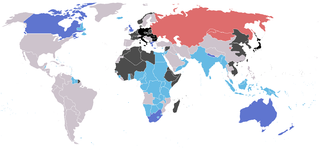 W
W"The Darkest Hour" is a phrase used to refer to an early period of World War II, from approximately mid-1940 to mid-1941. While widely attributed to Winston Churchill, the origins of the phrase are unclear.
 W
WSir Winston Churchill, son of Lord and Lady Randolph Churchill, and grandson of the 7th Duke of Marlborough, was Prime Minister of the United Kingdom between 26 October 1951 – 6 April 1955 and 10 May 1940 – 26 July 1945.
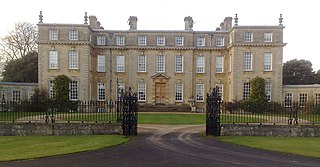 W
WDitchley Park is a country house and estate near Charlbury in Oxfordshire, England. The estate was once the site of a Roman villa. Later it became a royal hunting ground, and then the property of Sir Henry Lee of Ditchley.
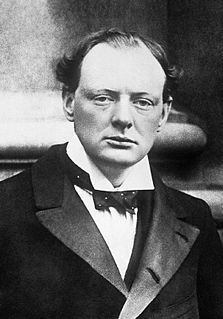 W
WThe early life of Winston Churchill covers the period from his birth on 30 November 1874 to 31 May 1904 when he formally crossed the floor of the House of Commons, defecting from the Conservative Party to sit as a member of the Liberal Party.
 W
WThe Gallipoli campaign was a military campaign in the First World War that took place on the Gallipoli peninsula, from 17 February 1915 to 9 January 1916. The Entente powers, Britain, France and Russia, sought to weaken the Ottoman Empire, one of the Central Powers, by taking control of the Turkish straits. This would expose the Ottoman capital at Constantinople to bombardment by Allied battleships and cut it off from the Asian part of the empire. With Turkey defeated, the Suez canal would be safe, and a year-round Allied supply route could be opened through the Black Sea to warm water ports in Russia.
 W
WHero of the Empire: The Boer War, a Daring Escape, and the Making of Winston Churchill is a 2016 book by Candice Millard covering Winston Churchill's exploits during the Boer War. Her third book, Hero of the Empire garnered favorable response by major newspaper companies worldwide and was a winner of the 2017 Kansas Notable Book Awards.
 W
WThe Right Honourable Sir Winston Leonard Spencer-Churchill, received numerous honours and awards throughout his career as a British Army officer, statesman and author.
 W
WOperation Hope Not was the code name of a funeral plan for Winston Churchill titled The State Funeral of the Right Honourable Sir Winston Leonard Spencer Churchill, K.G., O.M., C.H. that was started in 1953, twelve years before his death. The detailed plan was prepared in 1958. Churchill led the country to victory in the Second World War (1939–1945) during his first term as Prime Minister of the United Kingdom. While in his second term he was struck by a major stroke in 1953 that caused concern for his health. The British Government started a meticulous preparation, as officially decreed by Queen Elizabeth II, to be of a commemoration "on a scale befitting his position in history". As remarked by Lord Mountbatten, Churchill "kept living and the pallbearers kept dying" such that the plan had to be revised several times in the years before his death in 1965.
 W
WThe Jordan–Saudi Arabia border is 731 km in length and runs from the Gulf of Aqaba in the south-west to the tripoint with Iraq in the north-east.
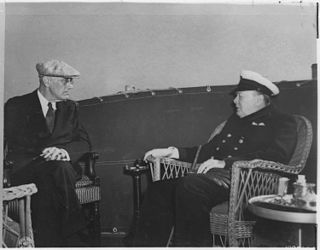 W
WThe Malta Conference was held from January 30 to February 3, 1945 between President Franklin D. Roosevelt of the United States and Prime Minister Winston Churchill of the United Kingdom on the island of Malta. The purpose of the conference was to plan the final campaign against the Germans with the Combined Chiefs of Staff. Politically the overriding purpose was to present a united front against Stalin in the Yalta Conference a few days later; that did not happen once Yalta began, much to Churchill's disappointment. Both leaders agreed on the undesirability of the Red Army advancing into central Europe.
 W
WThe Churchill war ministry was the United Kingdom's coalition government for most of the Second World War from 10 May 1940 to 23 May 1945. It was led by Winston Churchill, who was appointed Prime Minister by King George VI following the resignation of Neville Chamberlain in the aftermath of the Norway Debate.
 W
WThe Churchill caretaker ministry was a short-term United Kingdom (UK) government during the latter stages of the Second World War, from 23 May to 26 July 1945. The prime minister was Winston Churchill, leader of the Conservative Party. This government succeeded the national coalition which he had formed after he was first appointed prime minister on 10 May 1940. The coalition had comprised leading members of the Conservative, Labour and Liberal parties and it was terminated soon after the defeat of Nazi Germany because the parties could not agree on whether it should continue until after the defeat of Japan.
 W
WWinston Churchill formed the third Churchill ministry in the United Kingdom after the 1951 general election. He was reappointed as Prime Minister of the United Kingdom by King George VI and oversaw the accession of Queen Elizabeth II in 1952 and her coronation.
 W
WSir Anthony Arthur Duncan Montague Browne was a British diplomat who was private secretary to Sir Winston Churchill during the last ten years of the latter's life.
 W
WWinston Churchill was introduced to painting during a family holiday in June 1915, when his political career was at a low ebb. He continued this hobby into his old age, painting over 500 pictures of subjects such as his goldfish pond at Chartwell and the landscapes and buildings of Marrakesh. He sold some works, but he also gave away many of the works that he self-deprecatingly described as "daubs" as gifts.
 W
WWinston Churchill was appointed First Lord of the Admiralty on 3 September 1939, the day that the United Kingdom declared war on Nazi Germany. He succeeded Neville Chamberlain as prime minister on 10 May 1940 and held the post until 26 July 1945. Out of office during the 1930s, Churchill had taken the lead in calling for British re-armament to counter the growing threat of militarism in Nazi Germany. As prime minister, he oversaw British involvement in the Allied war effort against the Axis powers. Churchill is seen as a victorious wartime leader who played an important role in defending Europe's liberal democracy against the spread of fascism, though some wartime events like the 1945 bombing of Dresden have generated controversy. He was the most important of the Allied leaders during the first half of the Second World War.
 W
WThe 1945 Prime Minister's Resignation Honours were announced on 14 August 1945 to mark the resignation of the Prime Minister, Winston Churchill, following the success of the Labour Party in the 1945 General Election.
 W
WSir Winston Churchill, twice British Prime Minister, made numerous statements on race throughout his life before, during, and after his career in British politics. Assessment's on Churchill's legacy have traditionally focused on his leadership of the British people during the Second World War. However, in the 21st century, some critics have argued that evaluations of Churchill's legacy must include his imperialist and racist views, which they alleged played a part in various decisions he made while in office; these include his response to the Bengal famine of 1943. He consistently exhibited a "romanticised view" of both the British Empire and the reigning British monarchy, especially of Elizabeth II during his last term as premier.
 W
WThe Roaring Lion is a famous photographic portrait of Winston Churchill as Prime Minister of the United Kingdom. The portrait was taken in 1941 by Turkish-born Armenian-Canadian photographer Yousuf Karsh in the Centre Block on Parliament Hill in Ottawa, Ontario, Canada.
 W
WMary Soames, Baroness Soames, was an English author. The youngest of the five children of Winston Churchill and his wife, Clementine, she worked for multiple public organisations including the Red Cross and the Women's Voluntary Service from 1939 to 1941, and joined the Auxiliary Territorial Service in 1941. She was the wife of Conservative politician Christopher Soames.
 W
WThe Sword of Stalingrad is a bejewelled ceremonial longsword specially forged and inscribed by command of King George VI of the United Kingdom as a token of homage from the British people to the Soviet defenders of the city during the Battle of Stalingrad. On 29 November 1943, it was presented to Marshal Joseph Stalin by British Prime Minister Winston Churchill at a ceremony during the Tehran Conference, in the presence of President Franklin D. Roosevelt and an honour guard.
 W
WThe Tehran Conference was a strategy meeting of Joseph Stalin, Franklin D. Roosevelt, and Winston Churchill from 28 November to 1 December 1943, after the Anglo-Soviet Invasion of Iran. It was held in the Soviet Union's embassy in Tehran, Iran (Persia). It was the first of the World War II conferences of the "Big Three" Allied leaders. It closely followed the Cairo Conference which had taken place on 22–26 November 1943, and preceded the 1945 Yalta and Potsdam conferences. Although the three leaders arrived with differing objectives, the main outcome of the Tehran Conference was the Western Allies' commitment to open a second front against Nazi Germany. The conference also addressed the 'Big Three' Allies' relations with Turkey and Iran, operations in Yugoslavia and against Japan, and the envisaged post-war settlement. A separate protocol signed at the conference pledged the Big Three to recognize Iran's independence.
 W
WThen Churchill Said to Me is a television comedy series starring Frankie Howerd and Nicholas Courtney. Made in 1982, the series was not screened until 1993.
 W
WThe Miners Strike of 1910-11 was an attempt by miners and their families to improve wages and living conditions in severely deprived parts of South Wales, where wages had been kept deliberately low for many years by a cartel of mine owners.
 W
WIn May 1940, during the Second World War, the British war cabinet was split on the question of whether to make terms with Nazi Germany or to continue hostilities. The main protagonists were the prime minister, Winston Churchill, and the foreign secretary, Viscount Halifax. The dispute escalated to crisis point and threatened the continuity of the Churchill government.
 W
WWestminster College Gymnasium is a historic athletic building on the campus of Westminster College in Fulton, Missouri. The building is famous for being the site of Winston Churchill's March 5, 1946 "Sinews of Peace" speech, in which he coined the phrase "Iron Curtain" to characterize the growing Cold War. In 1968, the gymnasium was designated a National Historic Landmark.
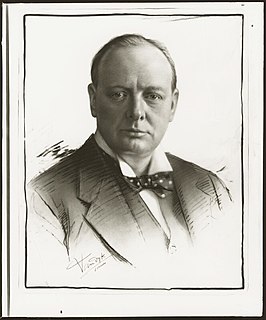 W
WWinston Churchill was made Chancellor of the Exchequer in 1924 by Prime Minister Stanley Baldwin and served until 1929, presenting five budgets. He was initially sceptical about advice from the Bank of England and leading economists to implement a return to the gold standard. In April 1925, however, he agreed to include the measure in his first budget. It resulted in deflation and unemployment, and was a catalyst to the miners' strike that led to the General Strike of 1926. Churchill's other policies as Chancellor included free trade, a reduction in the rate of local taxation, lowering the pension age and support for coal miners and the mining industry.
 W
WWinston Churchill Collegiate Institute is a public high school in the Dorset Park neighbourhood of Scarborough, Toronto, Ontario, Canada and is owned and operated by the Toronto District School Board The school was named after Winston Churchill, the Prime Minister of the United Kingdom from 1940 to 1945 and 1951 to 1955.
 W
WWinston Churchill was appointed First Lord of the Admiralty on 3 September 1939, the day that the United Kingdom declared war on Nazi Germany. He succeeded Neville Chamberlain as prime minister on 10 May 1940 and held the post until 26 July 1945. Out of office during the 1930s, Churchill had taken the lead in calling for British re-armament to counter the growing threat of militarism in Nazi Germany. As prime minister, he oversaw British involvement in the Allied war effort against the Axis powers. Churchill is seen as a victorious wartime leader who played an important role in defending Europe's liberal democracy against the spread of fascism, though some wartime events like the 1945 bombing of Dresden have generated controversy. He was the most important of the Allied leaders during the first half of the Second World War.
 W
WWinston Churchill was first elected to the UK Parliament at the 1900 general election as one of two Conservative Party members representing the Oldham constituency. He took his seat in the House of Commons in February 1901 but soon became critical of the Conservative government on a number of issues. On 31 May 1904, he formally crossed the floor of the Commons to join the opposition Liberals, remaining a party member until March 1924.
 W
WWinston Churchill's pets are the various pet animals which were kept by Winston Churchill.
 W
WWinston Churchill, in addition to his careers of soldier and politician, was a prolific writer under the pen name 'Winston S. Churchill'. After being commissioned into the 4th Queen's Own Hussars in 1895, Churchill gained permission to observe the Cuban War of Independence, and sent war reports to The Daily Graphic. He continued his war journalism in British India, at the Siege of Malakand, then in the Sudan during the Mahdist War and in southern Africa during the Second Boer War.
 W
WThe Yalta Conference, also known as the Crimea Conference and codenamed Argonaut, held February 4–11, 1945, was the World War II meeting of the heads of government of the United States, the United Kingdom, and the Soviet Union to discuss the postwar reorganization of Germany and Europe. The three states were represented by President Franklin D. Roosevelt, Prime Minister Winston Churchill, and Premier Joseph Stalin, respectively. The conference was held near Yalta in Crimea, Soviet Union, within the Livadia, Yusupov, and Vorontsov Palaces.